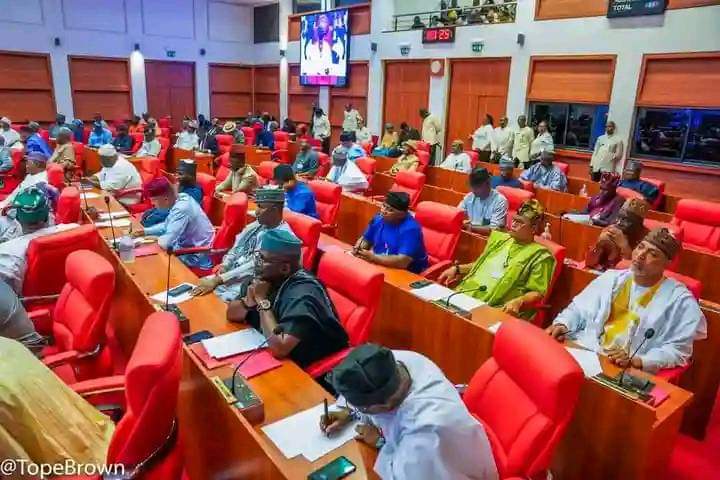The Senate, yesterday, said the free fall of the Naira is as a result of the border closure by the federal government.
The Senate, however, advised the executive to open the border to ease business operations within the country.
Speaking during the inaugural meeting of the Senate Committee on Industry at the National Assembly, the Committee Chairman, Senator Francis Fadahunsi, posited that without the federal government opening the borders for smooth business operations, goods and services would not circulate adequately in the country.
He also pointed out that without adequate circulation of goods and services, revenue earnings would stagnate; a situation he explained was responsible for the free fall of the naira.
“The Naira is on a free fall against major global currencies because of the closure of our border. If our borders are not opened,how would goods and services be exchanged? If Nigeria,a big market, is not dealing with exchange of goods and services how would she earn funds,” he queried.
Senator Fadahunsi, who appealed to the federal government to ease the process of doing business in Nigeria, said that such a measure would attract foreign direct investments, with its attendant job creation for the teeming Nigerian youths.
The Vice Chairman of the Committee, Senator Binos Dauda Yaroe of Adamawa South, stated that the Committee would do everything possible to provide the necessary legal backing to companies engaged in production and manufacturing of goods.
“Our mandate is clear. To oversight parastatals and agencies within the line of the ministry of the Trade and Investment. And that we will do excellently, with a view to providing the expected legal backings and framework.
“No country which doesn’t produce survives. We can’t continue to import everything we use in this country. So,we will do our best to mitigate the sufferings of companies”,he said.
In attendance were Senators Benson Agadaga of Bayelsa East and former Rivers Deputy Governor, Ipalibo Gogo Banigo; both of whom encouraged the federal government to come up with a roadmap capable of turning the dwindling fortunes of companies in the industrial sectors.











